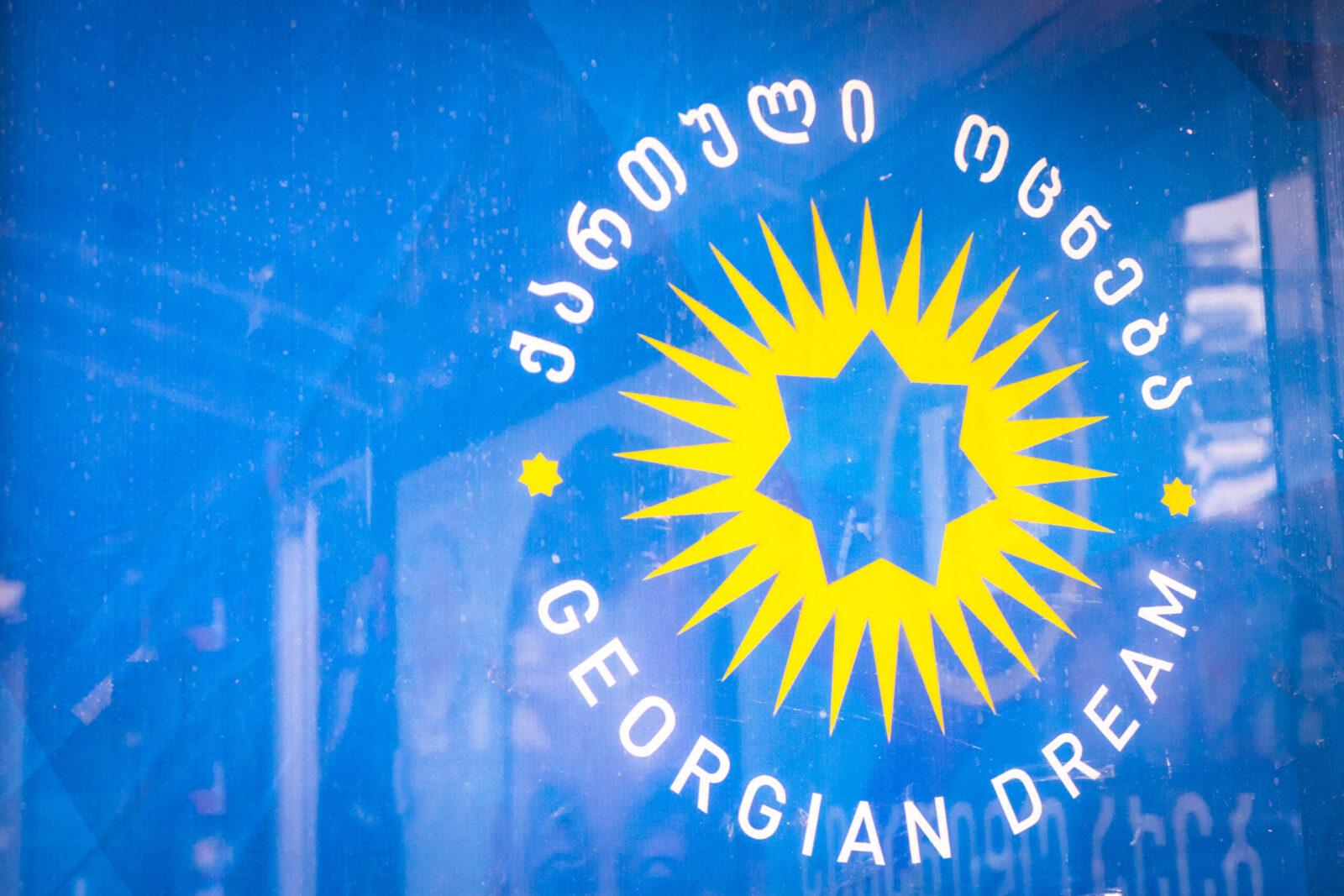Georgian reforms delay as EU pressure mounts
Georgia’s ruling party hesitates to implement crucial reforms while the country’s citizens and EU impatience grows.
December 16, 2022 -
Mark Temnycky
-
Articles and Commentary

Georgian dream party logo in Tbilisi ahead of the parliamentary elections in 2020. Photo: EvaL Miko / Shutterstock
After a brief summer hiatus, the Georgian parliament returned in September to address a series of anti-corruption measures proposed by the European Commission. The Commission has left the door open for candidate status, so implementing these recommendations will allow Georgia to pursue its European integration efforts. Nonetheless, Georgia still has work to do to improve its chances of EU accession.
The Georgian parliament is familiar with what is required of it to achieve EU candidate status, however, its reform efforts have been slow. Political polarisation remains present in Georgian politics, and in the country’s parliament. The ruling party, Georgian Dream, missed its initial target of proposing and implementing the relevant EU-related legislation by the middle of October, leaving many Georgians disappointed.
Protests over the government’s slow responses and actions on EU integration have attracted tens of thousands of Georgians. These citizens fear that political infighting within the government is slowly sabotaging the country’s hopes of joining the EU, in a country where most are in favour of membership.
There are good reasons for these frustrations. The Georgian parliament has only recently introduced an anti-oligarch bill, for example, despite this being an area highlighted by the EU’s recommendations. The reasons for this delay remain unclear, not unlike the governing party’s intentions with it. The EU’s guidelines on how to implement this anti-oligarchy law were not overly specific. The proposed bill’s language is likewise vague as it does not clearly define the term oligarch. Some see this as intentional, as Georgian Dream’s leader, Bidzina Ivanishvili, is himself seen as an oligarch by both opposition politicians and the EU parliament. Officials from Georgian Dream have refuted such claims, however, this has not stopped speculation that the anti-oligarch bill has been influenced by considerations of his status.
There have been several other delays with reform efforts. In one instance, Georgia was tasked with creating an Anti-Corruption Bureau. Georgian Dream has said that it will work to create this bureau, but Transparency International declared that the proposed bureau failed to meet the EU’s standards. The organisation stated that the bureau proposed by Georgian Dream would not meet the criteria outlined in the EU’s recommendations, and that the ruling Georgian parliament would need to implement a new strategy.
These are just two major and recent examples of how politics and internal issues have delayed Georgia’s ambitions of Western integration. The EU stated in its recommendations that it would like Georgia to address these areas and implement these reforms by 2023. Should these delays continue, it would suggest that Georgian Dream is not serious about EU accession, despite the desires of Georgian citizens. On the contrary, it would suggest that Georgian Dream is content with the current political nature of the country, and it will reaffirm the EU’s decision not to grant the country EU candidate status this summer.
All hope is not lost, however. Salome Zourabichvili, the president of Georgia, has criticised Georgian Dream for their lack of efforts on anti-corruption reforms. She has argued that the Georgian parliament needs to decide if it will prolong the Soviet system of governance, or if the country will start to move toward the “European system.” The Georgian opposition has also made its opinion known.
The most significant deterrent to continued delays, however, could be the ballot box. A lack of real reforms will ultimately hurt the country, and it will be against the wishes of the electorate. For years Georgians have been calling on their government to transform the system, as they understand the benefits of adopting European values and principles. Integrating with the EU would create a multitude of political and economic opportunities, and it would allow the country to grow. If Georgian Dream fails to implement the EU’s recommendations in a timely fashion, Georgia will remain in a continuous cycle of political infighting. Should this occur, the people will be able to give their response at the 2024 parliamentary election.
Mark Temnycky is an accredited freelance journalist covering Eastern Europe and a nonresident fellow at the Atlantic Council’s Eurasia Center. He can be found on Twitter @MTemnycky
Please support New Eastern Europe's crowdfunding campaign. Donate by clicking on the button below.

































